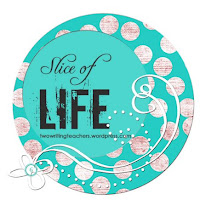Slice of Life Story Challenge March 13 - No Time To Be Reluctant
In this past week I have heard the term, ‘reluctant writers’ on at least three separate occasions. It’s a term that causes me to respond. I feel the need to challenge its use. I try to do it diplomatically of course, but I do challenge it, as I did this week.
When we talk of young writers in this way, we pull up way short of the mark. We need to ask why is this student behaving in this manner when it comes to writing?
Asking ‘why?’ is a key to finding out more about that particular young writer and hopefully what is inhibiting their enjoyment of writing.
Invariably what is impeding the writer from experiencing a stronger connection to the writing task is confidence- or rather a lack of it. And if you dig a little deeper it is frequently connected to a poor self perception in relation to spelling. It may also be the challenge presented by the physical task of writing due to a lack of a fluent writing style. Sometimes it is related to matters of sight or hearing.
For me, reluctant writers don’t exist. I have encountered a number of writers over the years who lacked confidence when it came to writing and therefore approached the task with trepidation. They wanted to participate in writing just as surely as their fellow writers. They merely lacked the confidence to launch themselves confidently into the great unknown.
Watch a toddler keenly make marks on paper with a marker or crayon. It comes quite naturally. They exhibit no inhibitions about the task of scribing. It’s natural and immediately rewarding.
Sadly something happens to many of these so called ‘reluctant’ writers. Something convinces them that this writing business is not for them. Messages and demands from adults usually conspire to make them believe that writing holds nothing that is desirable.They begin to opt out of the game as their confidence declines.
The real challenge is to change the pictures in their heads regarding writing. Rebuilding the self image of these damaged writers can be a slow, protracted process. It requires a large dose of support and acceptance for the efforts of the writer. We need to reach out a hand and we cannot under any circumstances be 'reluctant.'






Here's what one of my juniors told me in his writing autobiography,
ReplyDelete""The most enjoyable thing about writing to me is when you don’t have to do it. The things I did write outside of school and the ones i did inside of school were nothing alike. The ones outside of school had many mistakes but it was interesting to read. The ones i did write inside of school were dull to read and didn’t have many mistakes."
As teachers, I think we tend to focus on the easily correctable things--grammar, punctuation, sentence structure--even in the drafting stage. Now I'm not so radical to say that those things don't count, but I believe students need to know their voice is recognized. They need to know their words matter. They need choice. Once those things happen and they write what matters to them, they then will focus on the "easily correctable".
My students write more for me than many have for past teachers. Much of it comes from that fact I want to hear what they have to say. I focus on the message rather than the mistakes (though I do help their writing become more conventional.)
ReplyDeleteI want you to teach writers at my school. I am totally in synch.
ReplyDelete